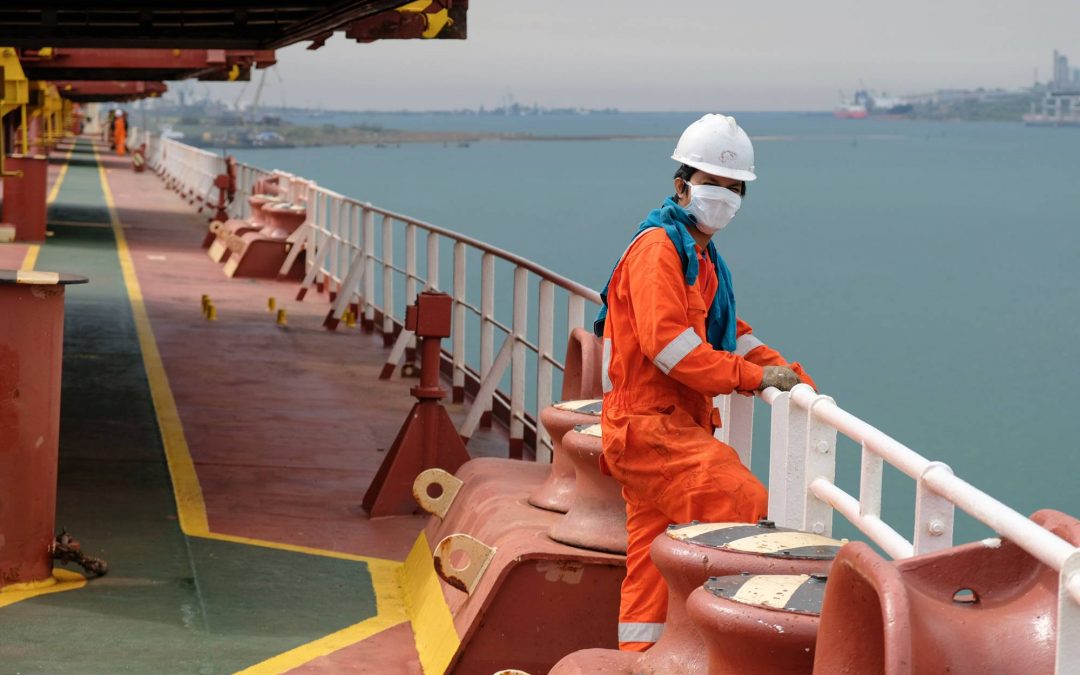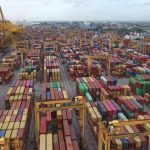The World Health Organization (WHO) and International Labour Organization (ILO) have agreed to form an Action Group with major international transport organizations aimed at protecting workers’ rights amid the spread of the omicron variant.
Director-General of the World Health Organisation Dr Tedros Ghebreyesus and ILO Director-General Guy Ryder said the action group is being formed “as a matter of urgency” to ensure freedom of movement for international transport workers.
The commitment comes after organizations and unions representing road, air and sea companies and workers met with the WHO and ILO last week, where they warned of the impact of new travel restrictions on transport workers and the already fragile global supply chain in the wake of the Omicron variant.
The trade groups include the International Air Transport Association (IATA), the International Chamber of Shipping (ICS), the International Road Transport Union (IRU), and the International Transport Workers’ Federation (ITF), which together represent more than $20 trillion of world trade annually and 65 million global transport workers across the supply chain. Earlier this month, the groups warned that world leaders’ knee-jerk reactions to the Omicron variant could put transport workers and the global supply chain at greater risk of collapse. Since Omicron was noted as a ‘variant of concern’ by WHO, some 56 nations have updated COVID tightened travel restrictions in response.
The WHO’s Dr. Tedros said the Action Group would begin work this week and regular meetings will be held with IATA, ICS, ITF and IRU going forward. He noted other areas of focus will include amending the Yellow Card, a medical passport issued by WHO, to be used by transport workers as proof of vaccination.
The WHO and the ILO also confirmed that the UN Secretary General’s Executive Committee in January 2022 will discuss further solutions to issues raised by the transport organizations.
“The COVID-19 pandemic remains a public health emergency of international concern that continues to adversely impact human health globally, and international trade and travel,” said Dr. Tedro. “Protecting the health of cross border transport workers and maintaining travel operations for emergency and humanitarian missions, essential personnel, repatriations, and cargo transport of essential supplies is of critical importance.”
Guy Ryder, Director-General of the ILO, said, “The world’s transport sectors and their workers face immense, ongoing pressures and difficulties arising from the COVID-19 pandemic. I am pleased therefore that we have now established a Joint Action Group that will review the impact of the COVID-19 pandemic on those workers, and encourage governments to apply internationally agreed protocols and standards.”
Guy Platten, secretary general of ICS, said governments need to urgently protect the health and safety of cross-border workers if they want a holiday season that is anywhere near normal.
“It’s really worrying to see last year’s draconian travel restrictions starting to reappear in many countries, especially as millions of transport workers have been making enormous sacrifices for scant recognition for nearly two years. It is very promising to see the WHO and ILO take leadership on protecting international transport workers’ rights and we look forward to working closely with them in the weeks and months ahead,” said Platten.
Stephen Cotton, general secretary of ITF, said: “As we enter peak season for transport workers over Christmas, it is critical that we work collectively to alleviate the strain on our global supply chain. What we can’t have are governments, like we’re seeing in Australia, blaming transport workers for disruptions stemming from a global health crisis. This is about leadership, not protectionism or politicking. We thank the WHO and ILO for their commitment to work with us and urge all governments to prioritize vaccinations for transport workers and allow their free and safe movement. If we’re serious about breaking the cycle of lockdowns and travel bans, then governments must also immediately stop blocking the TRIPS waiver and other barriers to the universal vaccine production needed to end this crisis.”
Source: gCaptain






